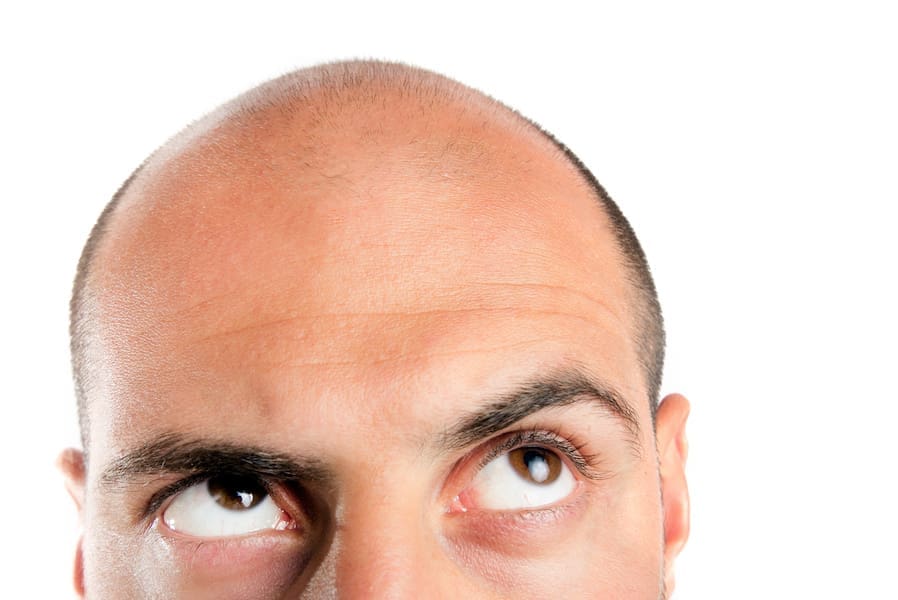Hair Loss and COVID-19

We are still learning a great deal about the effects of COVID-19. Many people experienced hair loss or thinning hair as a long-term side-effect of this disease. Certain individuals may feel more comfortable addressing this thinning hair with a custom hair treatment like scalp micropigmentation. Here is additional information about COVID-19 and hair loss.
How Are Hair Loss and COVID-19 Related?
The COVID-19 virus has not been shown to cause hair loss. However, hair loss has been associated with COVID-19 infections. When your body is fighting an illness, it undergoes additional stress. It is not just a cliche; extreme stress can make your hair fall out. When your immune system is taxed, it takes your body additional energy to fight off sickness. This stress on your body and your immune system can cause a hair loss condition called telogen effluvium.
What Is Telogen Effluvium?
To understand what telogen effluvium is, you will need to know more about the cycles of hair growth. Hair follicles go through cycles of producing hair; your hair is not actually growing all of the time. About 80 to 90% of the hair follicles on your head at any given time are actively growing hair, known as the anagen phase. The anagen phase can last for around three years. Hair follicles will then enter the telogen phase for a couple of months and will not produce more hair. This is the resting time for your hair follicles. Usually, about 10 to 20% of your hairs are in telogen.
The telogen phase lasts for only a few weeks before your hair follicle starts to grow more hair. When your body goes through extreme stress, your hair follicles will enter the telogen phase prematurely and pause the production of hair. Instead of 80-90% of your hair actively growing, more of it is in a resting state. Ultimately, this can change the growth cycle of your hair.
As you shed the normal 100 to 150 hairs every day, they are gradually replaced with new hairs. Up to 50% of the hairs on your head can be in the telogen phase after a stressful event. When your hair goes through normal shedding and breakage, it can appear thin because these hairs are not growing back at the same rate.
Will My Hair Grow Back?
The effects of telogen effluvium are almost always temporary. Most people recover on their own, and medication or additional treatment is not required. Once the stressor is dealt with, your hair should enter its normal growing stages. However, such recovery is not the case for everyone who has ever experienced telogen effluvium as a result of stress.
How Long Does Telogen Effluvium Last?
The shedding of hair during a telogen effluvium phase lasts anywhere from three to six months. When the telogen phase has been completed, the hair follicles will begin new growth. Researchers have noticed that the telogen phase lasts less time and hair regrowth is faster for COVID-19 patients with telogen effluvium. Some COVID-19 patients report no shedding as soon as two months, and vigorous regrowth in as little as three months.
Certain people will have chronic telogen effluvium, which is shedding that lasts for longer than six months with no obvious cause. You will need to work with your doctor to develop a treatment plan if you continue to notice hair loss.
Will My Hair Be As Thick as Before?
Your hair will likely return to the same texture and thickness as before telogen effluvium. Your hair is still thin immediately after because it has just started the regrowth period. Hair only grows at a rate of about one centimeter per month. For people with long hair, it may be up to a year before you notice a difference in your hair’s thickness and quality.
Long-term COVID-19
Telogen effluvium is a very common symptom for people with long-term COVID-19. Your body is still under a large amount of stress dealing with the effects of this illness. Keep in mind that hair loss can be a stressor on its own, so finding ways to cope with hair loss can boost your confidence and help you recover from telogen effluvium.
Solutions for Hair Loss
For most people, hair loss after COVID-19 is a temporary situation. Others will need long-term solutions. There are several options to treat hair loss but always talk to your doctor first. They are able to rule out any other reasons you may be experiencing hair loss, like a change in your medications or hormone levels.
Temporary hair loss solutions include hats and hairpieces. These may work in the short term while you and your doctor work to understand your hair loss. However, hats can look unprofessional and hairpieces need specific care and maintenance. It will also take time before you see the effects of medications like minoxidil. Hair transplant surgery is another possibility, but it is prohibitively expensive and may not be the right fit for everyone.
A great alternative to all of these options is scalp micropigmentation, also known as a hair tattoo or hairline tattoo.
Is Scalp Micropigmentation Right for Me?
If you continue to experience hair loss after COVID-19, or for any reason, scalp micropigmentation can create the look of natural hair on your scalp. This treatment is a non-invasive, affordable, and 100% effective hair loss solution. A practitioner skillfully places pigment under the skin of your scalp. They work to replicate tiny hair follicles and give you the look of a buzz cut or short hair stubble.
This procedure can help fill in thin-looking hair and lasts for four to six years. It is a remarkable hair-loss solution, and in just a few sessions, you will have the look of a clean-shaven head. Scalp Micro USA is one of the nation’s leaders in scalp tattooing, and we have clinics located in New York, Los Angeles, Austin, and Houston. Check out our website to learn more about scalp micropigmentation and if this procedure is right for you.

Tired of hair loss?
Get the perfect hairline, 100% guaranteed, with our scalp
micropigmentation treatment that is customized just for you. No more
crazy combovers. No more ineffective medications. Just results.